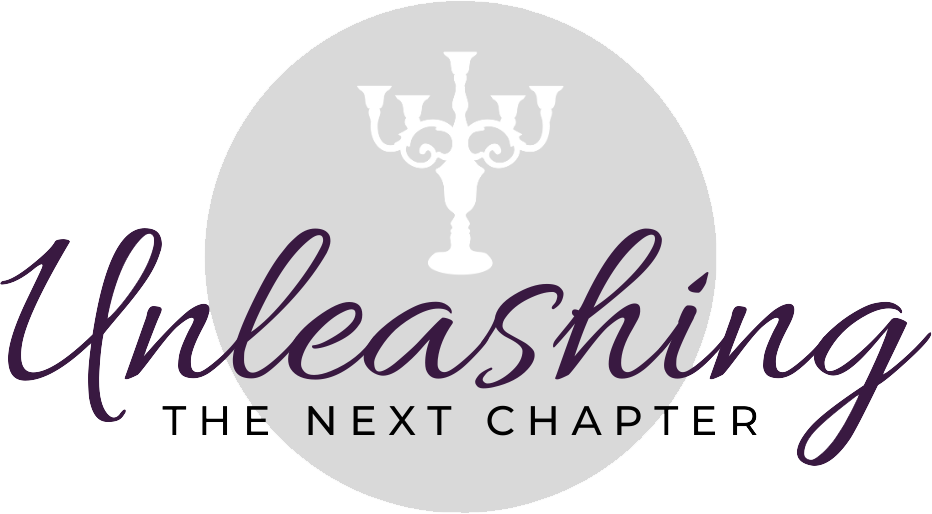This hashtag, #whyIwrite, has been floating around social media the last few weeks, and it got me thinking. Since TOMORROW is the kickoff of NaNoWriMo2017 (gasp! Are you ready?), and I intend to dedicate a minimum of fifty hours in the month of November in order to write 50k words on my book about service dogs, it only makes sense that I identify and know my why.
Perhaps you also saw the hashtag and the innumerable responses, posts, and memes over the past few weeks. Did you know that this hashtag movement actually started years ago by the National Council of Teachers of English? As an English teacher myself, I was thrilled to learn that October 20 has been declared by congress as the National Day on Writing since 2009, and that’s what prompted #whyIwrite. Unfortunately, some believed it was a NaNoWriMo stunt as part of their #Preptober lead up, and many of those who are not admirers of NaNoWriMo took to social media to decry both National Novel Writing Month, and denigrate the #whyIwrite posts and posters. But I digress…
I started thinking about why I write last year when I ran across a short piece by Jerry B. Jenkins (blog post I think? I have it dated 7/20/2016 in my notes, but not sure if that’s when it was posted, or when I saved it, or … the importance of proper citations, I know better… so very ashamed and sorry…):
“Write From Your Gut
Don’t write because you’re a writer.
Write because you have something to say.
Write from an overflow of passion.
Write because you can’t keep it to yourself.
“About vs. Purpose
When you write from your passions, your writing will never again simply be about something.
It will always be for the purpose of something. You’ll write with your reader first in your mind, determined to make a difference in his life.
That’s the way to write a winner every time.
What passion is fueling your writing?”
Mr. Jenkins has written over 185 books, many of them bestsellers. Now that his mission has become teaching and inspiring new writers, I am his willing and grateful student. I read pretty much every word of encouragement and advice he writes. He got me seriously thinking about my passion for writing. I have always been goal driven, but identifying and achieving goals is the “what.” Identifying the “why” is much deeper and harder, for me at least. When motivation, inspiration, and creativity are lagging, and fatigue and distraction set in, knowing why is essential. Why I am so passionate about this thing that I have made it a prioritized goal for the last five years? Why I am willing to invest and sacrifice time, money, activities, and possibly relationships, to do this thing? These questions were my starting points.
While searching my own heart and mind for my why, I also searched the Internet to find what other writers might have considered. This soul-searching is not new. In the summer of 1946, Eric Arthur Blair, better known as George Orwell, wrote an essay entitled “Why I Write” for the British magazine Gangrel. In it, he identified four motives he believed prompts all writers:
- Sheer Egoism—the desire to be remembered, to be important, to have one’s ideas discussed and validated, etc
- Aesthetic Enthusiasm—love of words, of crafting the perfect phrase or word picture…
- Historical Impulse—to document, make sense of, or influence the times we live in, and
- Political Purpose—with the assumption that everything we do, or don’t do, has political significance, and whether we realize it or not, we are commenting on and attempting to change politics in our family, community, nation, or world.
After first reading Mr. Orwell’s article, I dismissed it as simplistic and moved on. But it stuck with me. As with most things Orwellian (by the way, I’m more of a fan of his academic work than his novels, weird, I know), his thoughts usually run deeper than a cursory glance would show. Thinking about it more, and taking my ego out of the picture —hard considering his first point— I decided he was correct. But I also realized that finding my why, what fuels my passion, has to be much more personal.
If you want a long answer, check out my blog post “40 Reasons ‘Why Do You Write’ Challenge.” Those are specific reasons why I write what I write; however, I think the response to this question needs to be more elemental, more essential to what gets me fired up and inspires me to spend so much time learning and practicing this craft. So here is my four-point response to #whyIwrite:
- To discover myself—writing helps me identify and analyze my thoughts, dreams, motivations, and desires.
- To connect with others—writing is a deeper level of communication and intimacy that lets us more closely feel and experience each others’ lives.
- To process information—writing allows me to collect, summarize, analyze, and apply new information and integrate it with existing knowledge.
- To teach—writing, in all its forms, is the best way I have found to share what I have learned, both academic and life lessons, to create empathy, and to help make sense of what often seems senseless in this world.
The question that logically follows “why I write?” seems to be “why I write about certain specific topics?” If you have followed this blog for any time, or looked at the most popular posts, you will see I have a variety of interests, but try to circle around five general themes in all my social media platforms (in addition to the random posts about what’s going on in my life). These subjects were focused on in social media because these are the themes that make their way into everything I write, both intentionally and unintentionally:
- Writing and Reading—WIP status updates, author and writer events, flash fiction, book reviews, etc. because it’s what I do, what I’m talented at, what I’m trained for, and basically who I am.
- Human-trafficking—and to a lesser extent violent crime, law enforcement, and the local/national/international justice systems…
- Invisible Disabilities—this also includes posts about health and wellness, and Service Dogs,
- Religious Freedom—I am unashamedly a Christian, and I also firmly believe in every human’s right to believe and practice their religion of choice, or lack thereof, in peace, safety, and with respect.
- Literacy—this, to my mind, is the tie that binds everything together. Without basic literacy there is no reading and writing, justice system, health, freedom, or quality of life. Statistics repeatedly and alarmingly prove this time after time.
Should you want more specifics as to why I am so passionate and write about these topics/themes, read my post “Advocacy—Everyone Can Do Something.” This post was focused on writing because it is my passion and overriding objective.
If you need inspiration, encouragement, and motivation for your passion, or any endeavor, I suggest you spend a few minutes listening to Michael Jr., “Know Your Why,” and Simon Sinek’s TEDx Talk, “Start with why—how great leaders inspire action,” both available on YouTube.
Did you already post your #whyIwrite on social media? Have you thought about it? I would love for you to share why you write or a link to your response in the comments. Also, let me know if you are participating in NaNoWriMo2017. If you want to be buddies on the NaNo Forums, I’m there as KateMcC.
Happy Writing!





I find Orwell’s four motives intriguing and have been pondering them to assess where I land in his mix. Your motivations are also spot-on, I think, and encompass valid reasons for writing. Thanks for this article. Good stuff to think about.